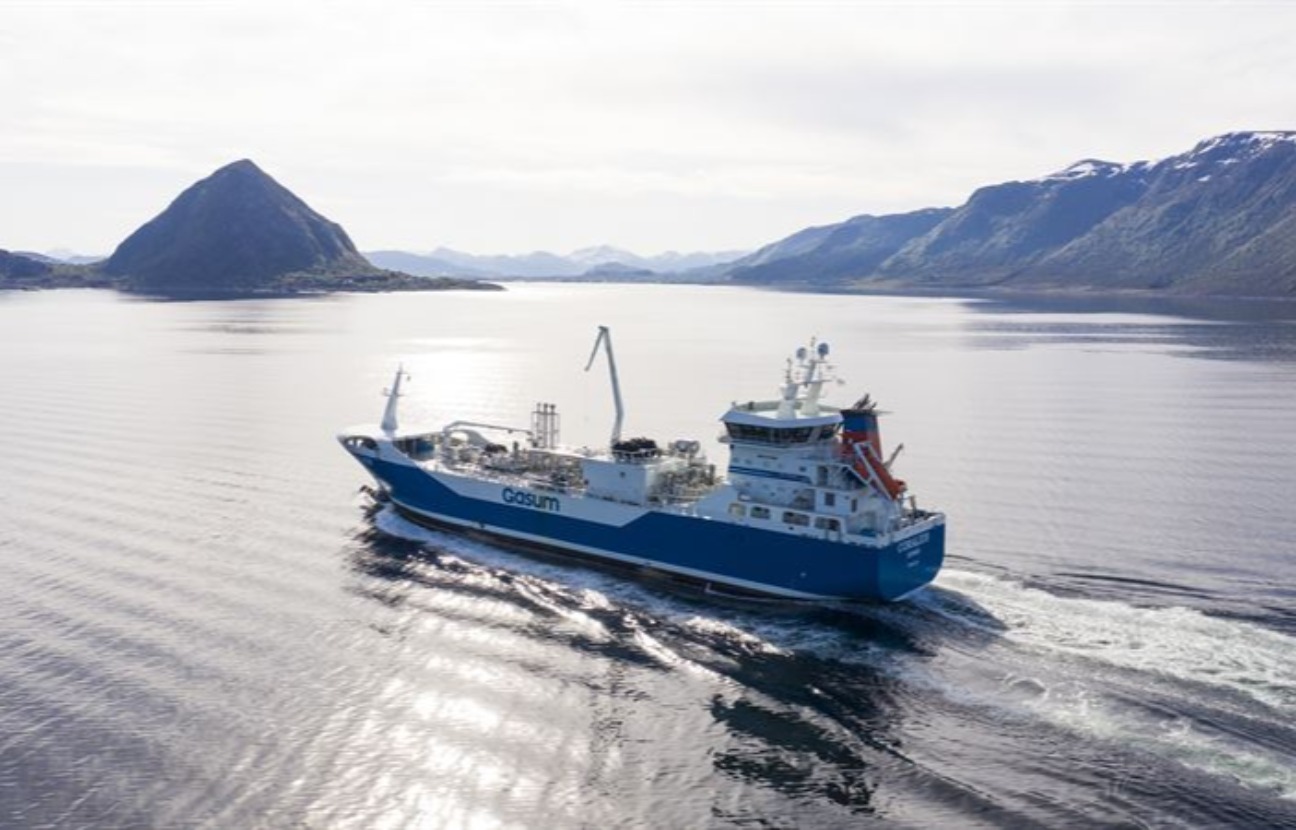A Nordic pioneer turns regulation into opportunity

Gasum bunkering vessel Coralius
Finland-based Gasum is charting a new course in Europe’s race toward sustainable shipping.
In October 2025, the company announced that its fleet of gas-powered carrier and bunkering vessels now runs on renewable bio-LNG, using the fuel to generate emission credits under the FuelEU Maritime Regulation — the European Union’s latest framework for cleaning up maritime transport.
By running its dual-fuel vessels on renewable gas, Gasum can earn surplus emission reductions that support other ships in its compliance pool.
What is bio-LNG and why does it matter for shipping?
Bio-LNG, or liquefied biogas, is produced from organic waste such as manure, food residue, or wastewater sludge. It’s chemically similar to LNG (liquefied natural gas) but produced from renewable sources, cutting lifecycle emissions by up to 90 percent compared with conventional marine gas oil.
Because bio-LNG can use the same engines and infrastructure as LNG, it’s one of the few immediately deployable low-carbon fuels for the maritime industry — offering deep cuts without waiting for hydrogen or ammonia technologies to mature.
Gasum has been investing in this space for more than a decade, building production capacity, bunkering infrastructure, and a growing biogas portfolio across Finland, Sweden, and Denmark.
Inside Gasum’s FuelEU Maritime strategy
Under the FuelEU Maritime Regulation, ships calling at EU ports must gradually reduce the greenhouse-gas (GHG) intensity of the energy they use.The targets start with a 2 percent reduction in 2025 and reach 80 percent by 2050.
To encourage flexibility, the law allows vessels to form “pools.” If one ship outperforms the target, its surplus can offset the shortfall of another — similar to an emissions-trading mechanism within fleets.
Gasum’s vessels now act as high-performing assets within this system. By operating entirely on bio-LNG, they generate verified reductions that the company can allocate across its compliance pool.
In practice, this makes Gasum both a fuel supplier and a compliance facilitator, helping other ship-owners meet their targets while strengthening its own business case for renewable fuels.
A long-term vision: from gas supplier to clean-energy enabler
Gasum’s October 2025 announcement caps years of groundwork:
-
2019–2023: Expansion of LNG bunkering operations across Nordic ports.
-
2024: Acquisition of biogas plants in Finland and Denmark to secure renewable feedstock.
-
2025: Partnership with classification society DNV to verify emissions and enable certified pooling under FuelEU.
-
2025: Chartering of new dual-fuel bunker vessels with Sirius Shipping and Anthony Veder, integrating them into the compliance system.
This sustained investment shows how Gasum is positioning itself as a regional leader in bio-LNG and a bridge to next-generation fuels such as hydrogen and synthetic methane.
The business case for renewable gas in shipping
For the shipping industry — responsible for roughly 3 percent of global CO₂ emissions — decarbonisation is no longer optional.
New regulations, rising carbon prices, and growing customer pressure are forcing companies to act.
Bio-LNG offers several business advantages:
-
Compatibility: Existing LNG-powered ships can switch without costly engine conversions.
-
Availability: Europe already has extensive LNG storage and bunkering infrastructure.
-
Immediate impact: Lifecycle emissions reductions of 70–90 percent are possible.
-
Compliance value: Under FuelEU, verified reductions can generate credits or be traded within a pool.
However, there are limits. The availability of sustainable feedstocks for biogas production remains constrained, and methane slip — unburned methane released during combustion — can undermine environmental gains if not controlled.
Regulation is reshaping maritime business models
The combination of FuelEU Maritime and the inclusion of shipping in the EU Emissions Trading System (ETS) is transforming how maritime companies think about fuel.
No longer is fuel just a cost — it’s a regulatory variable tied to emissions, compliance, and corporate reputation.
Gasum’s model demonstrates this new reality. Instead of simply delivering LNG, the company provides:
-
Low-carbon fuel supply (bio-LNG)
-
Verified lifecycle emissions data
-
Regulatory pooling and compliance services
For ship-owners, joining such a pool can mean reduced penalties and shared compliance. For Gasum, it creates a new revenue stream — selling not just energy but emission performance.
The road ahead: scale, policy, and partnerships
Gasum’s next challenge is scale. The company aims to increase bio-LNG availability across North-West Europe, expanding production capacity and securing new long-term offtake agreements.
Europe’s maritime market — spanning ferries, cargo vessels, and energy carriers — offers fertile ground. The EU expects alternative fuels to cover up to 25 percent of marine energy demand by 2040 if current policies hold.
To reach that, suppliers like Gasum will need stronger collaboration with ports, shipping lines, and policymakers to ensure that bio-LNG supply chains remain credible and traceable.
By combining renewable fuel, verified emissions data, and regulatory intelligence, Gasum demonstrates what a transitional fuel strategy looks like in practice - and that while
Bio-LNG may not be the final destination, it could serve as an essential bridge toward a zero-emission maritime future.